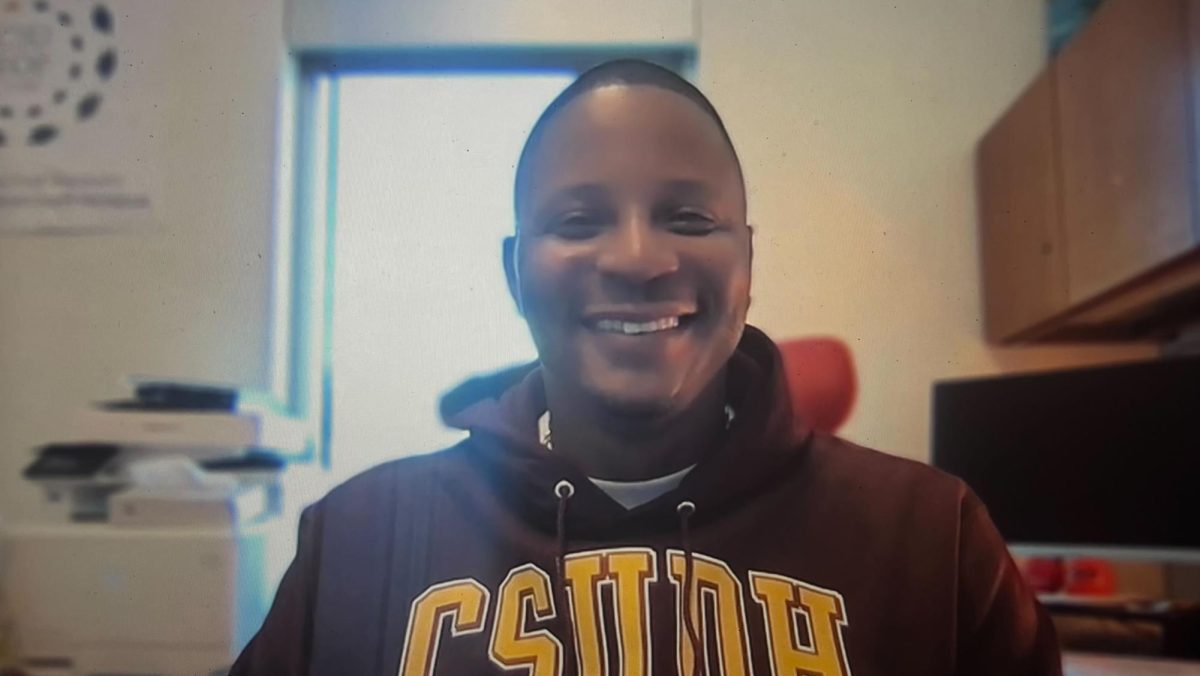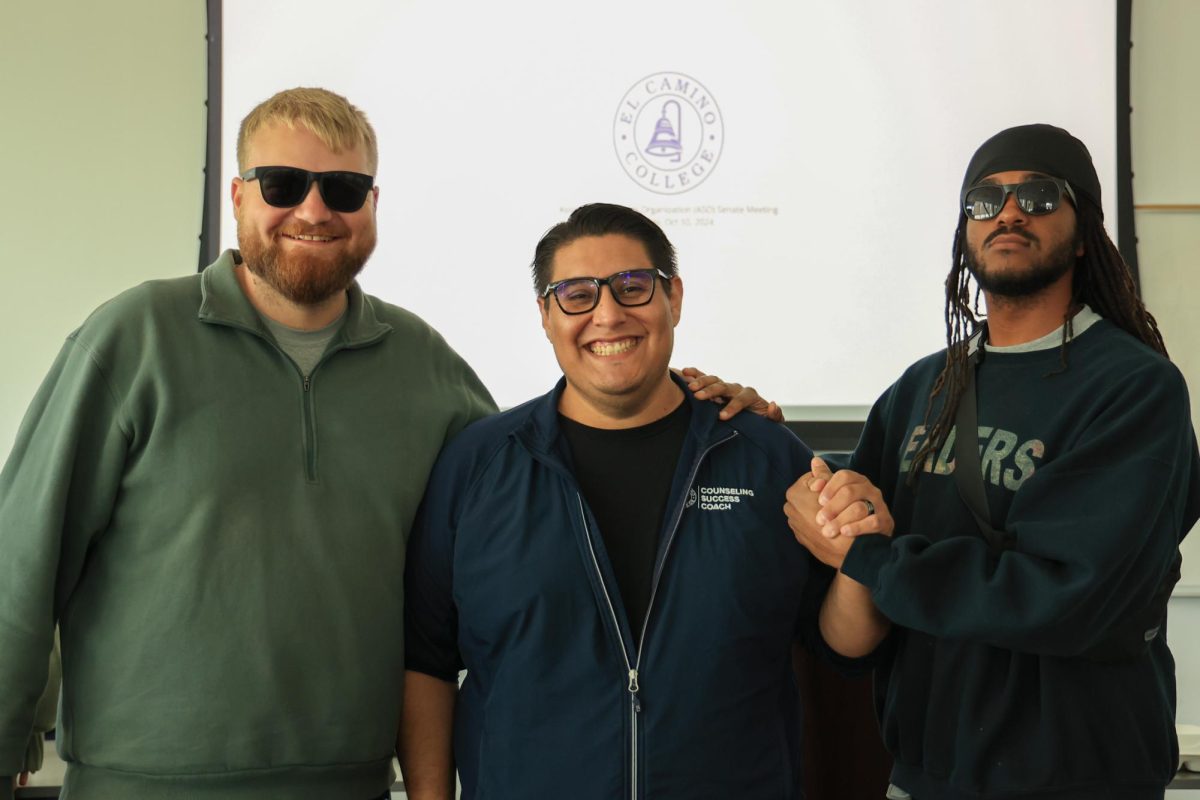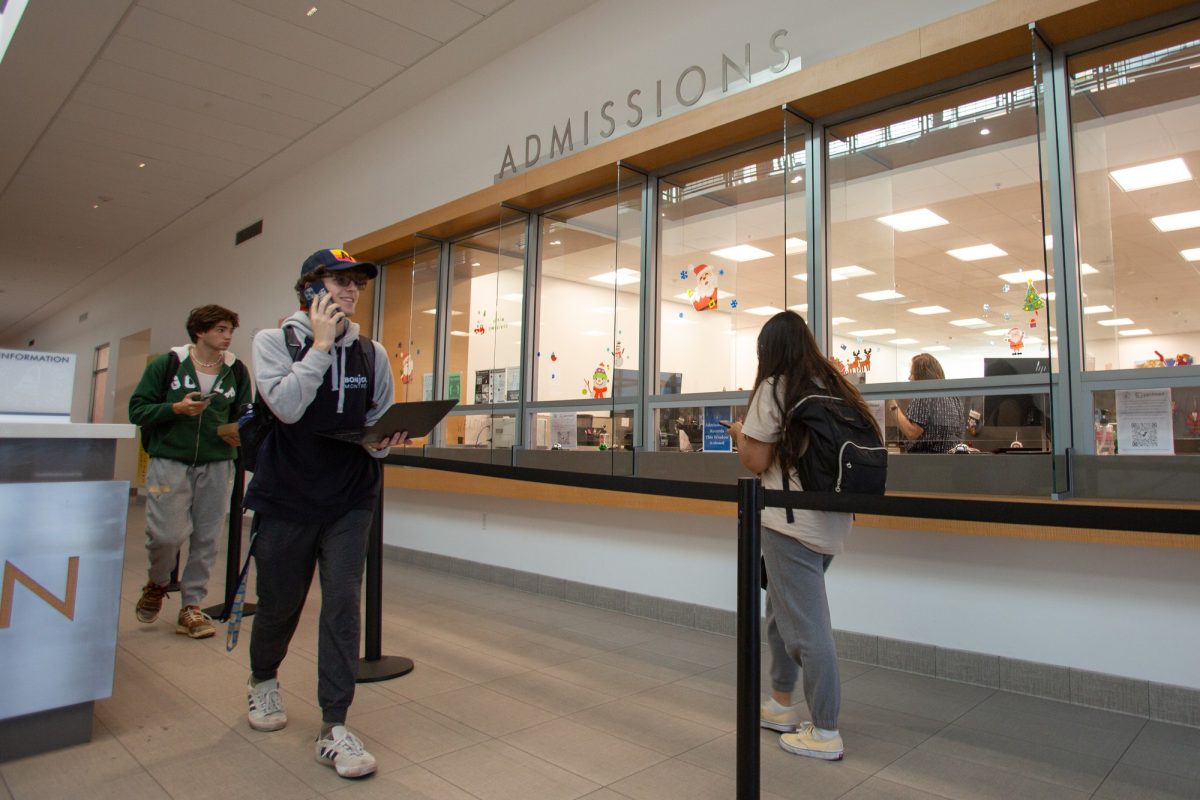Carrying signs stenciled with the slogan, “We are the 99 percent,” five students stood in protest between the Music and Art and Behavioral Sciences buildings Oct. 20, shouting in unison, “We’re fired up! We can’t take no more!”
“It was relatively small but the message was powerful,” Robert DeWitz said of the demonstration he’d organized the day before by word-of-mouth.
The 22-year-old psychology and sign language major said he is organizing the Occupy El Camino movement in solidarity with Occupy Los Angeles, because students need a forum in which to discuss the economic, social and political problems that they face.
“The main focus of Occupy El Camino is education,” DeWitz said.
“Those of us involved,” DeWitz said, including a half-dozen committed students as well as supporters from Occupy L.A., “believe that there are certain issues that we, as students, should be aware of that are not being communicated.”
DeWitz said that the nationwide Occupy movement is trying to fight the disappearance of the middle class as economic turmoil forces people into the underclass.
“El Camino students are the future middle class,” he said. “But if we’re left in twice as much debt and with no jobs, the future of the middle class is kind of bleak.”
According to a 2010 report issued by the Federal Reserve, student loan debt had surpassed credit card debt in the U.S. and according to the Department of Education, the percentage of students defaulting on these loans is increasing.
“Because of the bankruptcy of our political systems investing in the wrong places, we are not providing for our youth,” Alireza Ahmadpour, art professor at EC and a member of the Objectives and Demands Committee for the Occupy L.A. movement, said.
DeWitz said that the attack on education, shown in budget cuts that have resulted in tuition hikes and section cuts at EC, is just one of the issues that the movement will address.
The movement will take shape, DeWitz said, through teach-ins, which are open discussions involving guest speakers that will bring expertise to the topic at hand while welcoming students to participate in and steer the conversation.
“Through the teach-ins, we’re going to decide what we’re going to do and exactly what actions we’ll take to get there,” he said.
Laurie Houske, political science professor, said that the success of Occupy EC will depend on, “students having a high level of organization and clear goals.”
DeWitz said the strategy for organizing Occupy EC will be much like that of its L.A. counterpart, approaching issues using the diversity of skills and ideas brought to the movement by each of its participants.
DeWitz said he anticipates having about 20 fellow organizers involved within the next few weeks and said a weekly meeting on campus will most likely be set for Thursdays.
DeWitz said people can get involved with the movement by contacting him through the Occupy El Camino Facebook page.
“Occupy El Camino will give people the opportunity to be a part of the change,” DeWitz said. “To really have our voices heard.”








